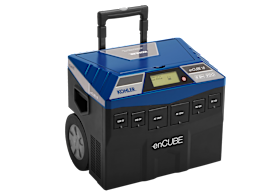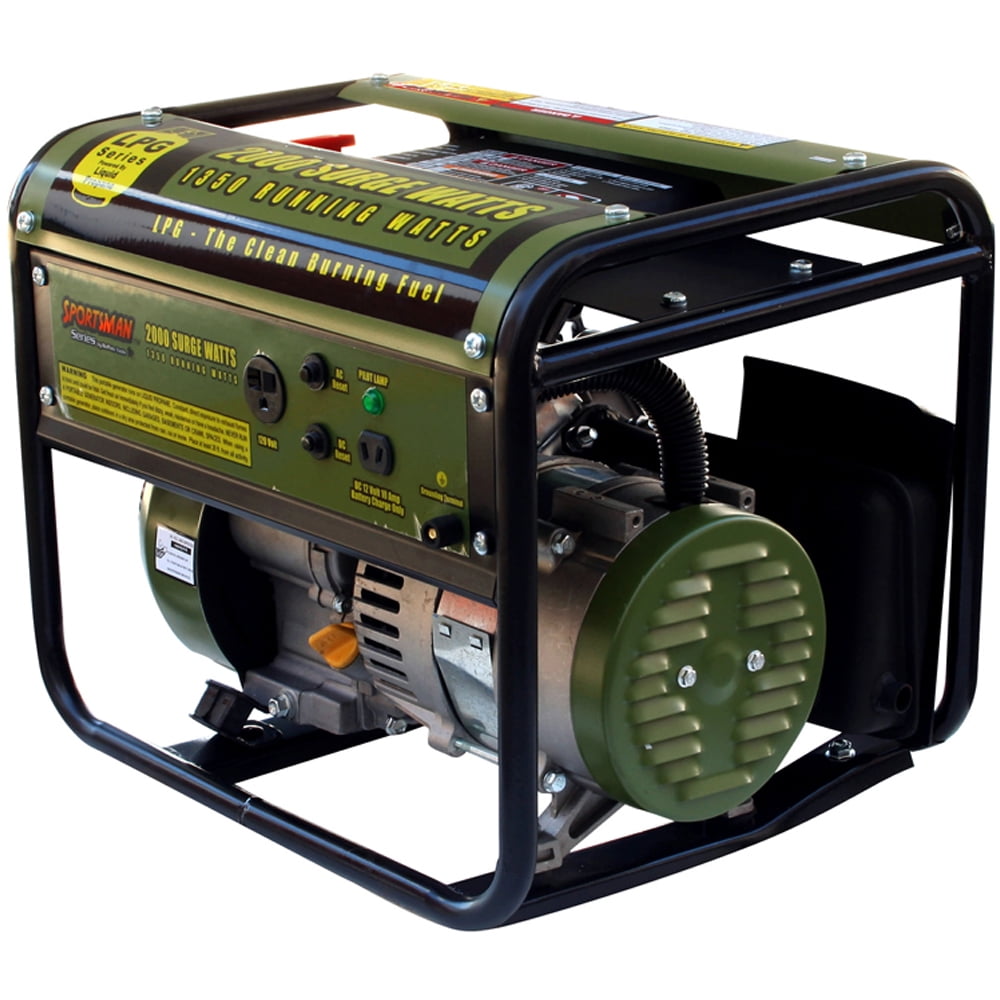

Typical generators have varying degrees of distortion in the sine wave of the alternating current. The conversion and inversion is controlled by circuitry which acts like a filter, flattens surges, and cleans up the sine wave (or oscillating wave) of the electrical current. They generate AC current just like the others, but it’s then converted to DC (Direct Current), and then inverted back to AC. Like most generators, inverter generators provide 120/240 volts of AC power. Though inverter-type generators are typically portable, we put them under their own heading because they are significantly and technically different from the other two in terms of how they work. Additionally, many models have a twist-lock plug that can provide up to 240 volts and be used to power circuits in a home via a manual transfer switch. Appliances, power tools, or other devices can be plugged directly into standard outlets on the generator’s front panel. However, at 100 plus pounds, picking them up to load or move may take two people. While the smallest models can be picked up and carried, most have wheels and a handle to make transport easier. Portable is a relative term some are more portable than others. Portable generators, sometimes called backup generators, are used to provide temporary power when and where it is needed.

AC power is what is distributed and used in our homes, so just about anything we can plug in at home can be powered by a generator.

The engine turns the alternator, producing AC (Alternating Current) power that goes through a voltage regulator to deliver 120 volts or 240 volts, as required. Generators consist of two major components: an engine and an alternator. Picking the wrong one, or using it improperly, could damage the generator or what is connected to it, at best-at worst, it could be dangerous, posing a risk of fire, electrocution, or carbon monoxide poisoning. Picking the right one means you’ll be able to power up the appliances or equipment you need. There are often laws, rules, and restrictions regarding their use in residential homes, with homeowners associations, at campgrounds, or on construction sites. SHOP NOW What You Need to Know About Portable Generatorsīefore running out to buy a portable generator it’s important to think about how and where you’re going to use it.


 0 kommentar(er)
0 kommentar(er)
